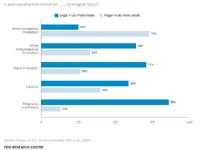It's rather astounding you had the gall to post this stupid video after I literally just made it very clear such low-quality posting would not be tolerated in this thread:I know this doesn't necessarily represent Godfather or Scorpion's specific individual churches, but I thought it was funny and somewhat appropriate to put on this thread. We can lighten things up a bit. Private interpretation of Sacred Scripture as the only authority and eternal security (where nothing can take away your salvation) can lead to anything (and has lead to the craziest things beyond any founder of Protestantism's imagining):
I'm very close to tossing out thread bans at this point. This is NOT a thread to mock Protestants. It is a thread for polite critique and debate.I'm not going to tolerate low-quality posts that mock or denigrate any of our three major Christian denominations. This is not an Orthodox forum, nor is it a Catholic forum or a Protestant forum. It is a forum for all who earnestly declare that Christ is King, and for the good of the community we must interact with each other in the spirit of mutual encouragement and edification, particularly in areas where we have theological disagreements.
This is not the RVF. You do not have carte blanche to bully or otherwise disparage non-Orthodox Christians or their beliefs, especially in a thread dedicated to productive cross-denominational dialogue.
If you think I'm talking to you with this warning, I probably am. If you want to try me on this, don't.

